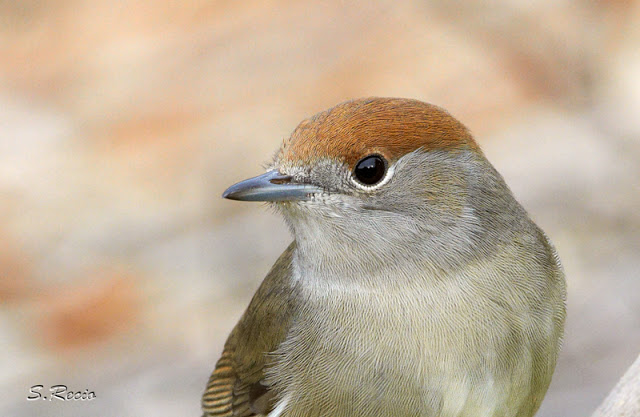Global warming will change parasite impacts on wildlife
Research suggests that global warming will promote the expansion of the most virulent strains of malaria parasites in bird populations
01-03-2014

Researchers of the Vertebrate Biology and Conservation Group at Complutense University of Madrid have analysed the distribution of avian malaria parasites among Iberian populations of a small bird, the blackcap. Their research, published in Global Change Biology, has identified several features of the environment that promote the proliferation of these parasites, thus laying the foundation for predicting future impacts on bird populations due to climate change.
The researchers have found that the abundance of parasites varies greatly among Iberian populations of these birds. This variation partly depends on elements of the landscape that can change unpredictably, such as forest cover or urban development (whose future characteristics will depend on land use policies). But what influences parasites the most is climate. This allows making reasonable predictions about parasites’ future impacts on each region, based on models of climate change expected under different scenarios of socioeconomic development.
This research of Complutense University reveals some worrying facts. Parasites affecting wild birds are diverse, and the environmental factors that favour some parasites harm others. This means that global change is likely to promote the expansion of some parasites at the expense of others. And unfortunately for birds, the study shows that among all malaria parasites, the most virulent types will be most favoured. What will be the consequences of altered disease impacts on wild bird populations? It is difficult to venture an answer; surely it will depend on birds’ ability to adapt to new conditions, develop resistance mechanisms or colonize regions that are less affected by parasites. What is clear is that the effects of climate change may be much more complex than we thought. The simple scenario in which global warming would favour any type of parasite transmitted by insects no longer holds: some parasites may be favoured and others disfavoured, and the consequences for affected animals will depend on which ones are promoted. This makes it difficult to predict with sufficient detail the future impact of disease on wildlife. And by extension on ourselves, for our parasites are influenced by climate in the same way as those of wild animals.
Today, most scientists agree in viewing global change as a major challenge for the 21st century. We have enough evidence that our economic development is altering the environment, and are urged to know how the world will change if this problem goes on. To this end, scientists develop models that may predict how natural processes will work with conditions expected in the future. And their predictions are not very positive: if we do nothing about it, in a few decades southern Europe will be more arid, and will probably suffer the expansion of diseases transmitted by biting insects such as malaria and leishmaniasis. The populations of these insects may be favoured by a warmer environment, which will increase their ability to transmit pathogens in areas where they were not causing problems today.
To foresee the problems that the spread of parasitic diseases can cause in the future, we need to know which environmental conditions may favour the proliferation of parasites today. The future impact of parasites will be greater where climate change generates these same conditions. However, the distribution of parasites may be influenced by many factors that may promote or hamper transmission. And the more complex the network of environmental influences responsible for the proliferation of parasites at present, the harder will be to predict their future impact.
Further reading:
Original articles:
Pérez-Rodríguez, A., De la Hera, I., Fernández-González, S. & Pérez-Tris, J. 2014. Global warming will reshuffle the areas of high prevalence and richness of three genera of avian blood parasites. Global Change Biology. https://doi.org/10.1111/gcb.12542
Pérez-Rodríguez, A., Fernández-González, S., De la Hera, I., & Pérez-Tris, J. 2013. Finding the appropriate variables to model the distribution of vector-borne parasites with different environmental preferences: climate is not enough. Global Change Biology. https://doi.org/10.1111/gcb.12226
